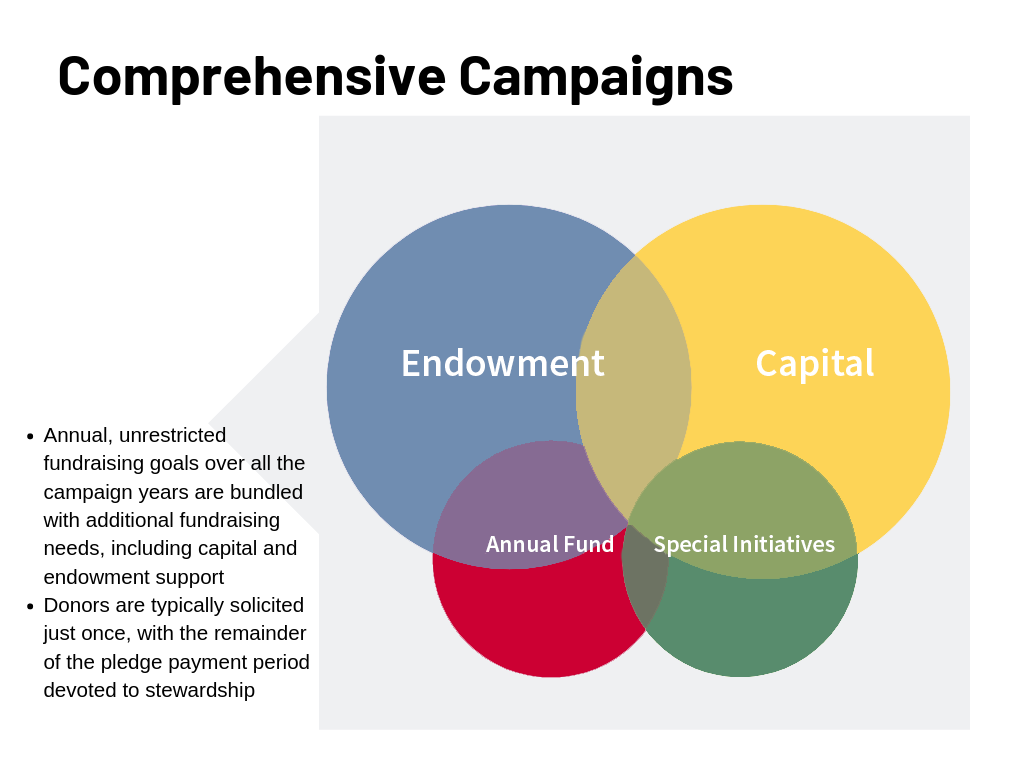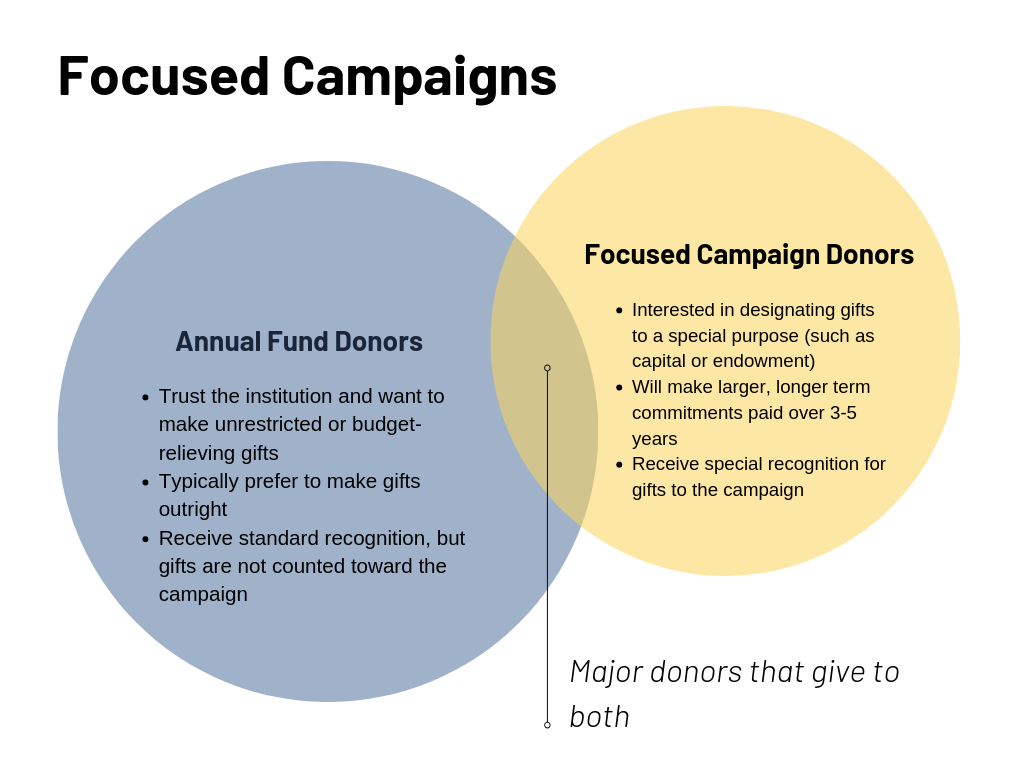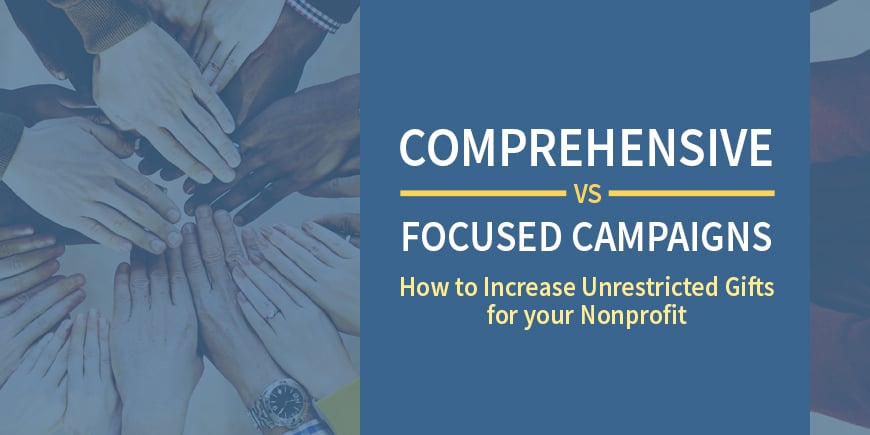When preparing for a campaign, nonprofits have two main options to consider -- capital campaign (also called a focused campaign) or comprehensive campaign?
Opting for a comprehensive campaign model over the traditional focused campaign can be a great strategy for raising general operating support, but it may be less familiar to your leadership and your donor base. We'll walk you through the nitty gritty to help you and your team have a better understanding and help you find the best campaign structure for you to succeed.What is a Comprehensive Campaign?
Comprehensive campaigns bundle annual fund goals over several years with extraordinary fundraising needs, such as capital or endowment support.
While this approach to major gifts fundraising may not be as familiar and therefore may require more coordination and consistency in your messaging, there are many benefits:
- Since donors are typically solicited just once for a multi-year gift, you’ll have more time for stewardship and donor engagement;
- The opportunity to make the case for increasing unrestricted gifts to build infrastructure, or respond to unique challenges and opportunities in your environment;
- Your entire universe of donors will be included in the campaign effort – everyone’s gift counts.
- Greater volunteer participation and leadership -- these campaigns can appeal to a wider audience.

Comprehensive Campaign Pros and Cons
| Single, Integrated fundraising effort with increased time for stewardship and donor engagement | Requires coordination and consistency in branding/messaging |
| Minimizes risk of losing annual fund gifts to the capital campaign and normalizes multi-year pledges to the annual fund | Asking donors to make "bigger bets" requires additional communication about the organization's results across all areas of the campaign |
| Includes entire universe of donors in recognition (i.e., everyone's gift "counts") and results in reaching a larger goal | Multi-year pledges can limit the ability to upgrade annual fund gifts during the pledge period |
Comprehensive Campaigns vs. Focused Capital Campaigns
Of course, there are many reasons to stick with the traditional campaign model. Focused campaigns allow organizations to concentrate campaign messaging on a distinct, concrete and pressing need.
The structure of capital campaigns can be transformative for organizations, generating excitement around something new and exceptional.

Focused Capital Campaign Pros and Cons
| Traditional campaign model that most donors and leadership easily recognize and are familiar with | Only some donors are included and recognized in the campaign |
| Helps complex organizations focus campaign messaging around a distinct and pressing need | Risk of losing annual fund gifts that may be allocated to the campaign instead |
| Generates excitement around something extraordinary, such as a building or innovative approach to mission |
Before embarking on a traditional campaign, organizations need to carefully plan to mitigate the risk of losing annual fund gifts that may be allocated to the campaign instead. Some large institutions do this by building in a mandatory campaign gift “fee” to support operations. Many nonprofits, however, find this transactional approach to be at odds with their efforts to create a culture of philanthropy.
Instead, budget-relieving dollars can be included in the focused goal for campaign-related costs, such as staff time and planning. Organizations can also solicit annual fund gifts in concert with campaign gifts, even if annual fund gifts will not be counted toward the campaign. Of course, the momentum you build with either campaign model can be leveraged as a donor acquisition strategy.
The Bottom Line
Nonprofits should take every opportunity to connect unrestricted gifts to increased impact. By elevating the importance of your flexibility, infrastructure and capacity, you shape a narrative about your organization that instills confidence and inspires larger gifts.
Originally published September 2019. Last updated September 2023.
Have a question or comment about campaigns? Tweet us at @twbfundraising or find us on LinkedIn.




Comments
Questions or comments? Join the conversation!